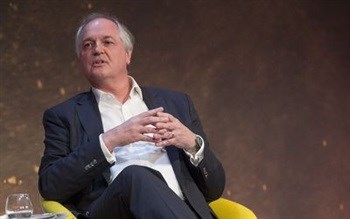
Top stories




Energy & Mining#MiningIndaba: How GenAI is reinventing mine maintenance in South Africa
Maroefah Smith 52 minutes


More news














There is almost no issue of the contemporary business/society debate that Polman does not blast through: poverty, global warming, job creation, gender equality, leadership, and even corporate reporting.
It is a blurring whirlwind of eloquence and conviction.
Nothing about the link between society and the Unilever business is accidental: the company’s business model is remarkable for explicitly taking the UN 17 Sustainable Development Goals and their predecessor Millennium Development Goals, and deliberately turning them into specific numerical targets for Unilever’s fast-moving consumer goods business.
How could that possibly work? It just does — or seems to. And Polman now has a huge trump card at his disposal: success.
To all the sceptics who claim that the "business of business is business", or that business should "stay out of politics", or that business has no role in society, Polman can slap on the table a trump card: Unilever’s market rating is excellent. Over the six years Polman has been CEO, the company’s share price is up 70% and it has outperformed its own market, the FTSE 100, by 60 percentage points. Granted, the wind has been in the sails of the overall fast-moving consumer goods market, but Unilever is trading 30 percentage points higher that its biggest rivals, Procter & Gamble and Nestlé, over the same period. Like its rivals, Unilever is trading on a demanding 21 times annual earnings.
Millennials, who famously prefer not to work for big global companies, are knocking on the company’s door, and the firm is the third most referenced company on LinkedIn after Apple and Google.
One of Polman’s first acts as CEO was to scrap quarterly reporting, and the market reaction was negative. But, he says, soon after making the announcement, he received a surprising supporting note from investment legend Warren Buffett, who he had previously never met. Buffett supported the general notion of focusing on longer-term goals, and said he had never given "guidance" and never would.
It turned out, however, this mini-revolution was just the start of a massively more widespread set of new social goals that were strongly aligned with social awareness and social wellbeing. The core of his argument is that corporate goals must be allied with social goals because companies operate within a social context, and if they do not, society will eventually reject them.
More than this, if they align their aims, it is not just good for society, but it is good for the company and, ultimately, its shareholders too.
Addressing a panel discussion in Johannesburg this week, Polman said SA was not the only country struggling to create jobs, but irreversibly eradicating poverty was the "biggest investment opportunity we have in the world today".
Every dollar invested in nutrition has a $17 return for society.
Extending access to finance, education, training, land rights, and women’s rights could grow the global economy by $28-trillion. Investing in water, sanitation, and hygiene could have a return of $5-trillion.
In the Sustainable Development Goals, the world has a framework to defeat poverty. The investment needed to achieve the goals has been estimated at between $2-trillion and $3-trillion. But the global economy is worth about $110-trillion, so the annual investment is only about 2%-3%, for a return multiple of five or 10 times that.
But how does a company actually do social consciousness? Especially one that sells beauty products such as Dove soap and Axe deodorant, ice cream such as Magnum, and a range of soaps such as Surf and Omo, among 400 or so other products.
It all seems slightly posed. Absolutely not, says Polman, slightly bristling. The idea is not "corporate social responsibility", but much more: "transformative changes". The result of the corporate deliberations is something called Unilever Sustainable Living Plan, a blueprint with specific numeric targets for leveraging products and supply chains to actually put development goals into practice.
Polman unusually came to Unilever as an outside appointment, and the company was at that time "under pressure", he says.
But his ambitions were bolstered by the company’s history.
The founder, Lord Lever, was a pioneer in socially conscious business, establishing a model village — Port Sunlight — in Merseyside in the UK in the late 19th century as a feeder town for the company’s expanding washing-powder business.
"Before you make changes and stimulate changes, you have to go back to the core and go back to the enormous values on which this company is built," he says.
"The stronger you have a purpose, actually, the easier it is to navigate these very choppy waters in the global economy today. It keeps you focused on the long-term things, and you don’t get sidetracked by the short-term temptations of quick wins that undermine the long-term viability of a company."
Short-termism is one of Polman’s big bugbears, and in an interview, he expanded on this point.
"I always say it’s better to be guided by the stars, rather than the lights of the passing ships."

For more than two decades, I-Net Bridge has been one of South Africa’s preferred electronic providers of innovative solutions, data of the highest calibre, reliable platforms and excellent supporting systems. Our products include workstations, web applications and data feeds packaged with in-depth news and powerful analytical tools empowering clients to make meaningful decisions.
We pride ourselves on our wide variety of in-house skills, encompassing multiple platforms and applications. These skills enable us to not only function as a first class facility, but also design, implement and support all our client needs at a level that confirms I-Net Bridge a leader in its field.
Go to: http://www.inet.co.za